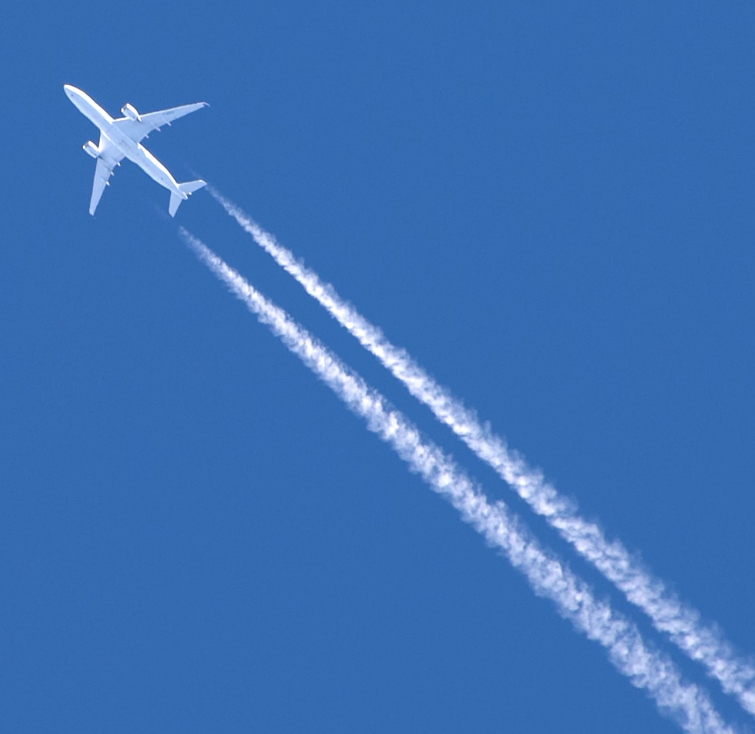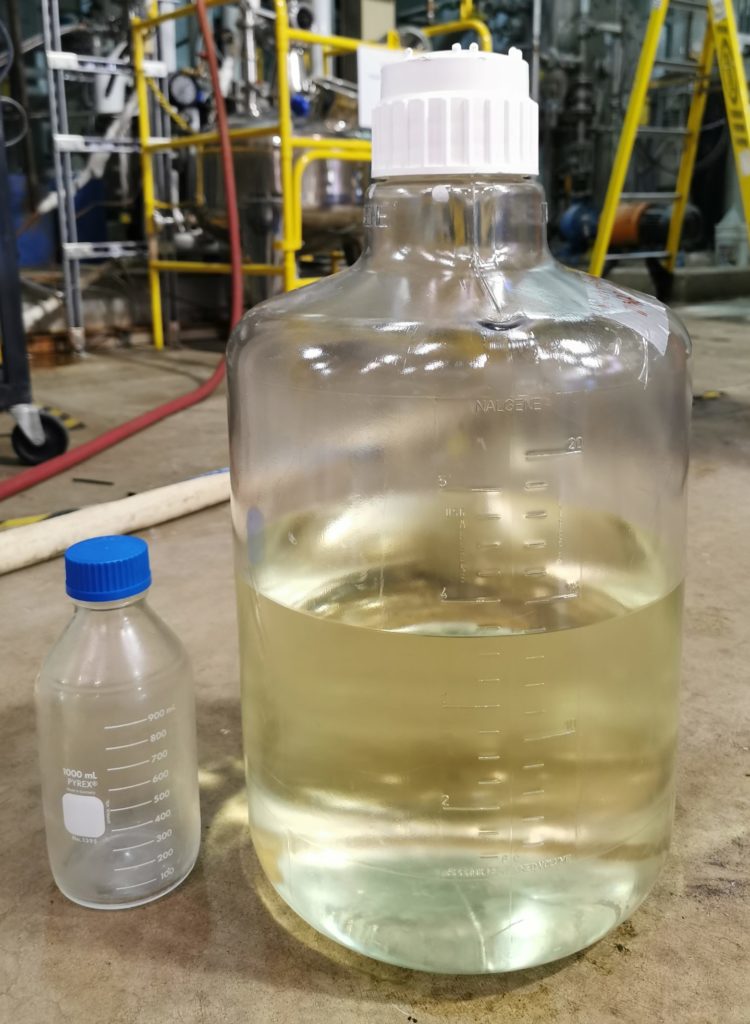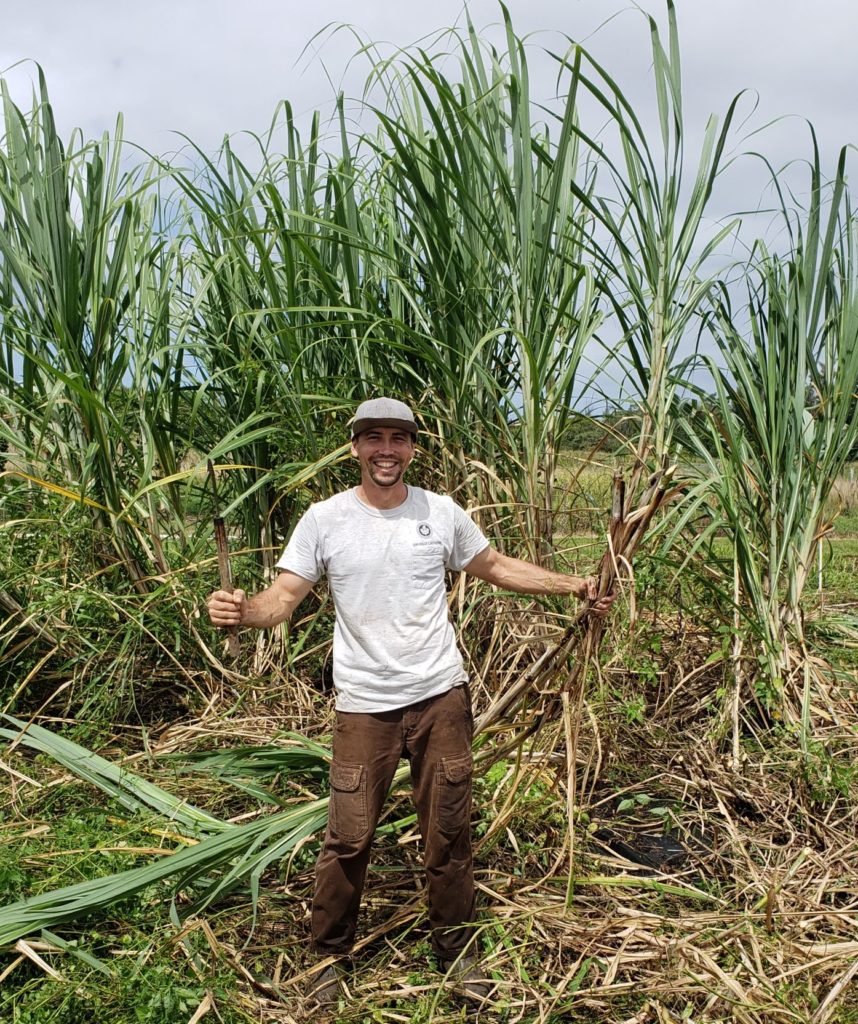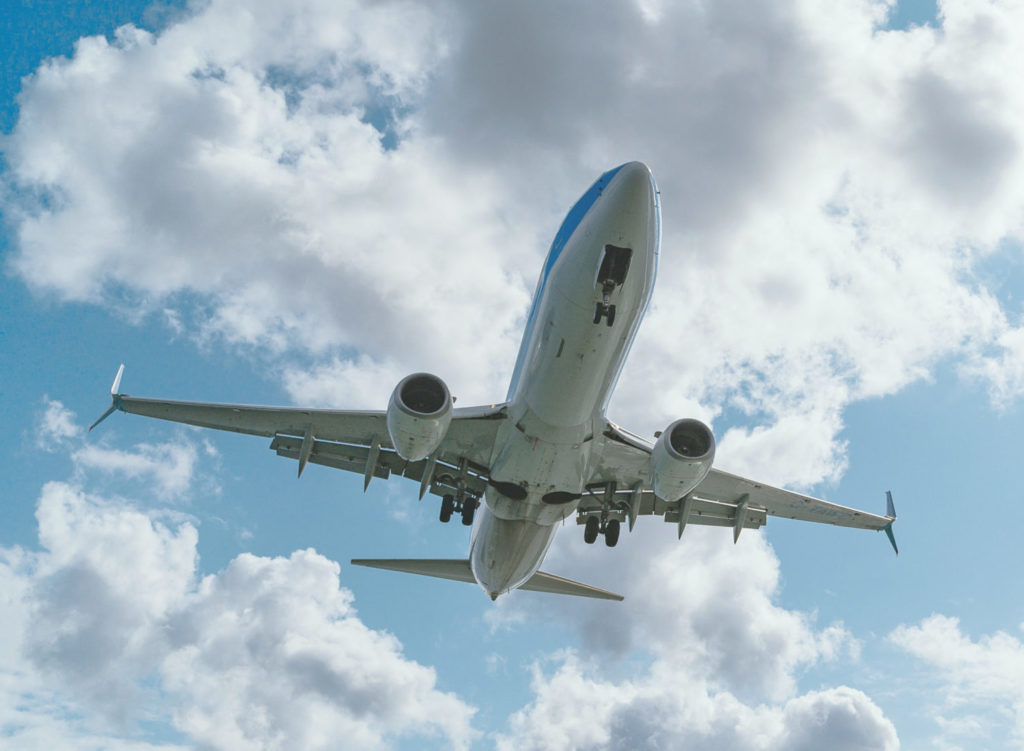UH Hilo’s New Bioeconomy Academy
IN THE FACE OF CLIMATE CHANGE AND ITS DEVASTATING EFFECTS TO THE PLANET, including severe drought, unprecedented rainfall, catastrophic flooding, sea level rise, and an increase in superstorms worldwide, humankind is facing one of its greatest and most complex challenges to date. However, an even greater challenge will be to get the world to transition from a dependency on fossil fuels to a sustainable, circular economy that provides renewable and clean sources of energy, fuels, materials, chemicals and other necessities of daily life.

Biomanufacturing and the bioeconomy, defined as the production of renewable biological resources and the conversion of these resources and waste streams into value-added products, is an important step toward replacing fossil fuels to reduce greenhouse gas emissions linked to climate change. This transition would be unprecedented in scale, societal impact and urgency, and requires heightened leadership and extraordinary public participation.
“Leaders who drive our transition away from fossil fuels must be knowledgeable in a wide range of disciplines, from sustainable agriculture to biomanufacturing, from business to policy, as well as in social-economic and cultural issues of appropriateness, equity and justice,” said Peter Matlock, bioeconomy research and commercialization specialist for the University of Hawai‘i at Hilo (UH Hilo). “Most importantly, informed and thoughtful perspectives on sustainability are required to serve as guiding principles in navigating the uncharted waters to attain environmentally and economically beneficial outcomes.”
The Applied Life-Science Academy: Knowledge Advancing Industry (ALAKA‘I) program at UH Hilo seeks to train and prepare leaders, professionals, students, and the community for this transition. The ALAKA‘I program, building on the Hawaiian term for “guide or leader”, is developing short, bootcamp-style training sessions that will broaden awareness of how to advance the bioeconomy.

The ALAKA‘I Academy is a partnership between UH Hilo’s College of Agriculture, Forestry and Natural Resource Management (CAFNRM), the non-profit BioMADE, the National Corn-to-Ethanol Research Center (NCERC) at Southern Illinois University at Edwardsville (SIUE), and Dr. James DeKloe of Solano Community College. BioMADE is a public-private partnership with over 125 university, community college, and industry members who are collaborating to advance bioindustrial manufacturing. NCERC is the nation’s “go-to” facility for demonstrating biomanufacturing technologies at larger scale, with extensive student training programs in biomanufacturing. Dr. DeKloe pioneered the biomanufacturing community college curriculum that set national standards, and also established the two-year Associate’s and four-year Bachelor’s degree programs in biomanufacturing at Solano Community College in Fairfield, California.
The ALAKAI courses are being developed through extensive interaction with a number of bioeconomy companies and research organizations to ensure relevance, meaning, and impact. The one-week bootcamp format will be broadly accessible and will provide participants with targeted learning that can deepen their understanding within their professional discipline and/or across other disciplines necessary to implement beneficial change. ALAKA‘I will be offered on an experimental basis over the summers of 2022 and 2023, after which technology and business training will be formally offered to the public on an ongoing basis by UH Hilo, its team members, and other interested institutions nationally. Courses addressing Hawaiian and Pacific Island culture will remain in Hawai‘i to maintain the appropriate sense of place.
Indigenous Native Hawaiian and Pacific Island cultural perspectives and knowledge are central to the program to provide deep insights into what it means to be sustainable and how to translate sustainability objectives into effective, contemporary solutions. Angela Fa’anunu, assistant professor of Sustainable Tourism at UH Hilo, is exploring Native Hawaiian and Pacific Island cultural perspectives to develop curriculum that emphasizes resiliency and adaptation to the environment. She believes the ALAKA‘I program can play a unique and critical role in conveying these perspectives to develop a bioeconomy that is inclusive and respectful of the environment.
“Diverse perspectives are particularly important when trying to solve complex and deep-rooted issues,” said Fa’anunu. “Hawaiian and Pacific Island societies are land-based, and people relate to each other and to their natural resources in different ways than current Western approaches.”
Bioeconomy solutions are integral to the “all-hands-on-deck” approach necessary to address climate change. For example, biofuels remain essential in transportation, especially for aviation where there are no alternatives to liquid fuel for long-haul flights. Sustainable aviation fuels now being scaled up from research labs, have performance superior to petroleum-based conventional jet fuel, with higher energy densities that enable more passengers and freight to be flown over more miles from each gallon of fuel. These bio-based fuels are compatible with the existing airline fleet and eliminate aromatic hydrocarbons, burn cleaner to reduce particulate emissions, eliminate contrails that contribute to atmospheric warming, improve worker safety, and reduce engine maintenance costs by eliminating soot build-up.

Additionally, new agronomics are being developed to sustainably produce biomass feedstock to make carbon-negative biofuels that actually draw down atmospheric greenhouse gas levels with each gallon of fuel used. A groundbreaking study investigating the growth of certain cultivars of sugarcane for conversion into high-performance jet fuel is currently underway at UH Hilo. With support from the U.S. Department of Agriculture, CAFNRM researchers are studying the feasibility of growing substantial amounts of cane biomass without traditional tilling or plowing to minimize inputs and farmer costs that will help to maximize biomass production, improve soil health and potentially reduce atmospheric carbon dioxide levels.
“The aviation industry recognizes that bio-based, or sustainable aviation fuels are essential to the future of aviation,” said Bruce Mathews, dean of UH Hilo’s CAFNRM and principal investigator of the project. “Fully one-half of the industry’s greenhouse gas reduction goals for 2050 can only be achieved via sustainable jet fuels.”
Bio-advantaged molecules harness the power of biological synthesis to make products that are infeasible to obtain from petroleum. Renewable, fully biodegradable, and/or infinitely recyclable plastics can directly address the world-wide problem of plastic waste build-up by diminishing pressure on limited landfills and more importantly—protect wildlife and humans from plastic ingestion and biosphere invasion. Bioeconomy products can also save wildlife directly. It is estimated that the biomanufacture of squalane, used primarily in cosmetics as moisturizer, from less than two hundred acres of sugarcane can save the lives of approximately two to three million sharks, whose livers currently serve as the primary source of the emollient.
According to reports by the McKinsey Global Institute and Schmidt Futures, it is estimated that the bioeconomy can grow to as high as $4 trillion in the next 10 to 20 years and UH Hilo and its partners intend for ALAKA‘I to help advance this tremendous growth.
The bioeconomy is critical to building sustainable communities, and agriculture plays the starring role in providing sustainable biomass feedstock to make bioeconomy products. The ALAKA‘I program helps place Hawai‘i at the forefront of promoting solutions to climate change at a local, national, and global level.
– Bruce Mathews
This is a critical opportunity to examine what we mean by sustainability. Although we think we understand how to define sustainability, it can rapidly become ambiguous when choices become difficult and complex,” said Matlock. “We are extremely fortunate that Dr. Fa‘anunu is leading the effort to explore indigenous perspectives to identify more durable and deeper guiding principles of sustainability to appropriately advance the bioeconomy through the ALAKA‘I program.”

